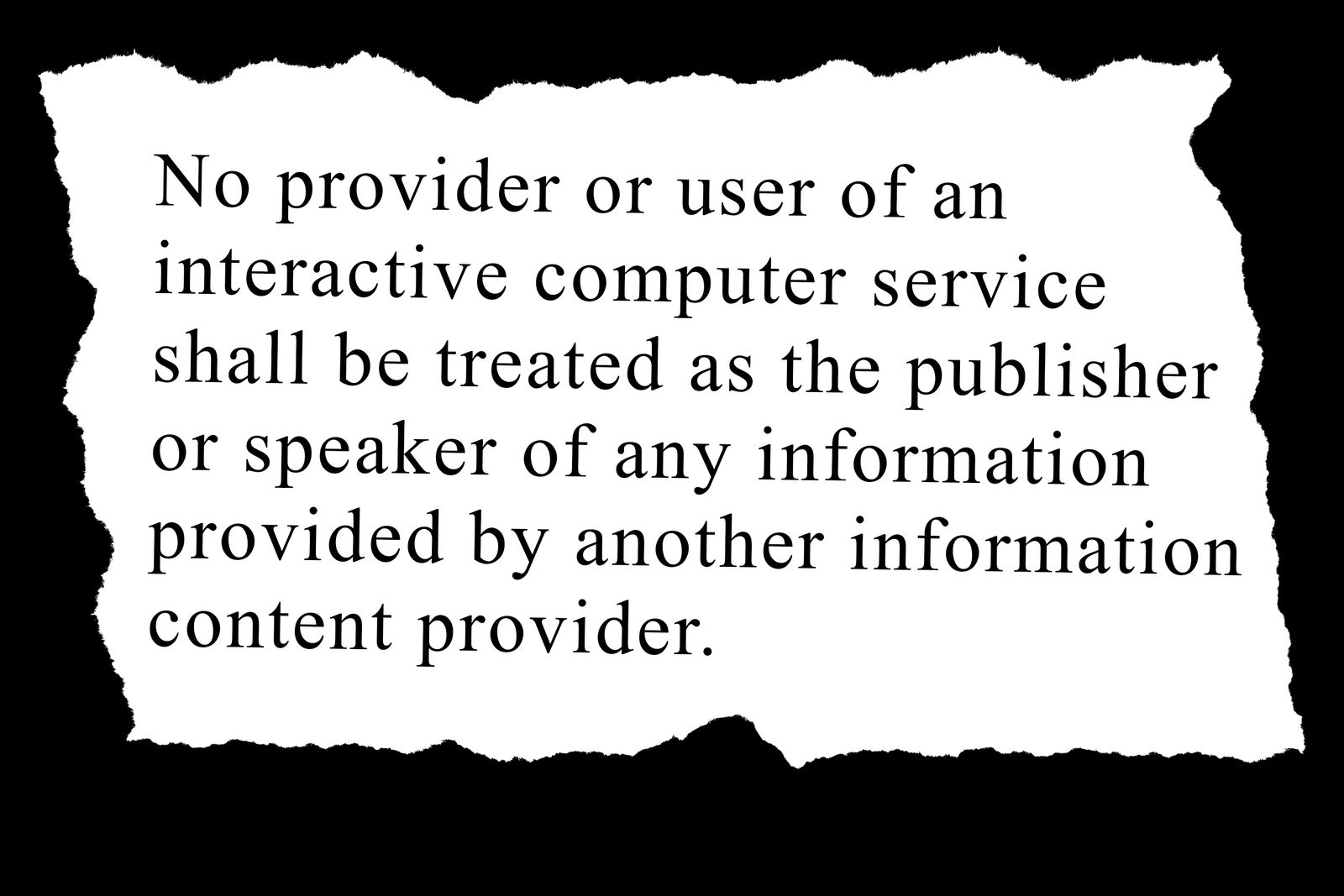
Shoshana Gordon/ProPublica
Jeff Kosseff wrote the book on Section 230, the law that gave us the internet we have today. He talks with ProPublica Editor-in-Chief Stephen Engelberg about how we got here and how we should regulate our way out.
ProPublica is a nonprofit newsroom that investigates abuses of power. This column was originally published in Not Shutting Up, a newsletter about the issues facing journalism and democracy. Sign up for it here.
Way back when AOL was a big tech company and people reached the World Wide Web via dial-up modems, Congress added a provision to federal law that has had a profound effect on every aspect of our democracy and public life. It’s called Section 230 of the Communication Decency Act, and it ruled that internet platforms, or message boards as they then were largely called, are not legally liable for false or defamatory information posted by users.
Although no one could have imagined it at the time, the 1996 legislation made possible the explosive growth of the modern internet. Freed from the threat of being sued for libel, Facebook, Twitter, Reddit and other corners of cyberspace became places where literally billions of people felt free to say whatever they wanted, from robust political disputes to false accusations of horrific acts to the spread of disinformation and lies. People often wrote actionable things about others but were seldom, if ever, sued personally for what they had said, the only recourse allowed under the new law. Also, individuals were less attractive targets for costly lawsuits than wealthy corporations.
The protection from legal liability proved essential to the explosive growth of the internet platforms, allowing them to remove posts that contained hate speech and other graphic material that might drive away users or advertisers. But at the same time, they did not have to read, research and “moderate,” in their terminology, every vituperative, spite-laced statement put on their sites by users.
Jeff Kosseff, a former reporter turned lawyer and legal scholar, has emerged as one of the leading experts on the 1996 law and is author of the aptly titled book “The Twenty-Six Words That Created the Internet.” With a growing impetus for both political parties to do something to improve Section 230, I connected with Kosseff recently to get his thoughts. (Full disclosure: When I was a managing editor at the Oregonian back in the early aughts, he covered telecommunications for the paper and eventually became its Washington correspondent.)
For those of you not steeped in press and communications law, here are the 26 words. They’re not exactly felicitous.
“No provider or user of an interactive computer service shall be treated as the publisher or speaker of any information provided by another information content provider.”
How did you get into this seemingly obscure subject?
Propublica for more
